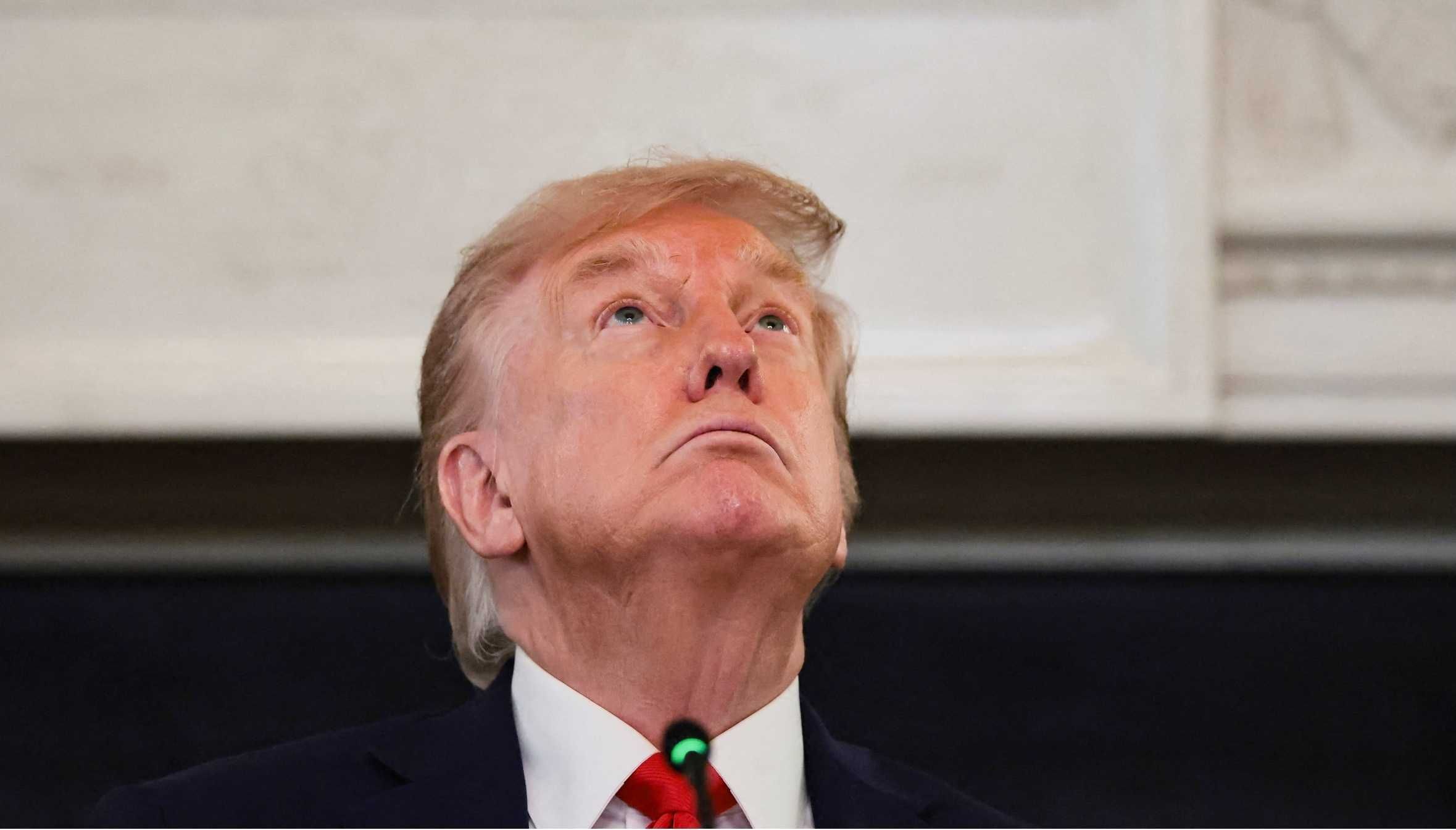U.S. President Donald Trump looks up as he participates in a roundtable on antifa, an anti-fascist movement he designated a domestic "terrorist organization" via executive order on September 22, at the White House in Washington, D.C., U.S., October 8, 2025. REUTERS/Evelyn Hockstein
In an unusual break in five years of practice, The Trump administration now wants the Supreme Court to let a Rastafarian inmate sue Louisiana prison officials who shaved his head against his faith.
On Monay, Bloomberg reports justices will hear Landor v. Louisiana Department of Corrections and Public Safety, which asks whether the Religious Land Use and Institutionalized Persons Act (RLUIPA) allows inmates to seek monetary damages from state officials for violating their religious rights.
The administration’s new argument puts it at odds with the position it took in 2020’s Tanzin v. Tanvir in which a unanimous Supreme Court ruled Muslim men could sue FBI agents individually under the Religious Freedom and Restoration Act. At the time, Muslim plaintiffs sued Trump officials for putting them on the No Fly List for refusing to be informants against their religious community. The Trump administration argued that a decision in favor of the Muslim men would clear "the way for a slew of future suits against national security officials, criminal investigators, correctional officers and countless other federal employees, seeking to hold them personally liable for alleged burdens on any of the myriad religious practices engaged in by the people of our nation."
But today the Trump administration says “no sound basis exists” to treat the two laws differently, and it urges Supreme Court justices to extend the ruling they originally opposed in Tanzin to state officials.
Bloomberg reports the solicitor general’s office acknowledged the administration’s about-face on the issue, claiming in a footnote that the new stance aligns with the government’s “longstanding view” that RFRA and RLUIPA should be read in tandem.
University of Texas School of Law professor Douglas Laycock told Bloomberg that the Trump administration’s change of heart likely reflects the president’s eagerness to back religious liberty claims that resonate with his Christian base.
“People in pews don’t care much about a Rastafarian, but the president can say they’re defending people in prisons of all religions,” said Laycock.
Elizabeth Reiner Platt, director of the Law, Rights & Religion Project at Union Theological Seminary, told Bloomberg that the administration has mostly backed religious litigants who advance cases that align with the president’s political agenda while sidelining others.
But Landor has drawn unusually broad support, she said, with dozens of religious groups joining the administration’s position “across the theologicial and political spectrums,” which cultivates temporary allies of organizations that often oppose its policies.
Bloomberg added that the conservative Supreme Court will “have to square its decision in Tanzin with its 2011 ruling in Sossamon v. Texas, which held that states can’t be sued for money damages under RLUIPA.”
The justices said in Sossamon that RLUIPA lacked the clear waiver of sovereign immunity needed to let inmates seek damages from state officials.
Read the Bloomberg report at this link.
From Your Site Articles
- MAGA influencer denied visa for failing 'character test': Report ›
- The votes rolled in and MAGA went down ›
- MAGA’s 'nonsense' obsession growing increasingly unhinged: analysis ›
- 'Strong ideological screening': Trump spouts xenophobic Christian nationalism in New Hampshire ›
- Why Trump’s MAGA evangelicals are much worse than past 'Christian conservatives' ›
Related Articles Around the Web
